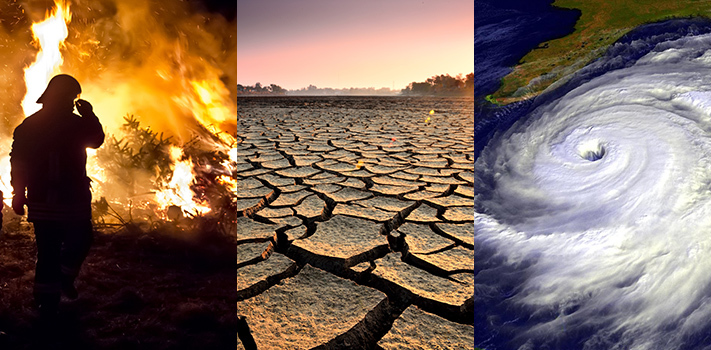International Rescue Committee highlighted the 20 nations that are most in danger of new or worsening humanitarian situations in the upcoming year. The International Rescue Committee’s (IRC) annual Emergency Watchlist is released today. One of the factors is climate change.
As East Africa experiences the worst drought in decades, Somalia and Ethiopia lead the list of nations assessed to be most in danger in 2023. Ukraine is listed in tenth place, after Afghanistan in third.
IRC expert analysis clearly shows three primary accelerators of humanitarian crises – armed conflict, climate change, and economic turbulence – with more than 340 million people in need of humanitarian assistance worldwide. There are also more than 100 million refugees.
The Watchlist highlights what can be done to reestablish these guardrails against a runaway world and demonstrates how systems intended to stop such crises from spiraling out of control are being dismantled, including diplomatic agreements, UN tribunals, climate early warning systems, and humanitarian aid itself.
Climate change and humanitarian crisis
According to a study by the NGO International Rescue Committee, in 2023, humanitarian crises would spread more quickly throughout the world due to climate change, compounding the problems brought on by armed conflict and economic downturns (IRC).
The New York-based organization, which is run by former UK politician David Miliband, noted that the number of people in need of humanitarian assistance has increased dramatically over the past ten years, surpassing 339.2 million as opposed to the 81 million recorded in 2014.
Despite the fact that the 20 nations on its emergency watchlist, including Haiti and Afghanistan, only account for 2% of global CO2 emissions, the IRC highlighted that climate change is one of the main drivers exacerbating humanitarian calamities.
The research claimed that 2022 has demonstrated the clear contribution of climate change to the escalation of the world humanitarian crisis.
Climate change hits poor countries more
Numerous deaths were reported in Pakistan due to record-long rainy spells that “caused catastrophic food crisis to Somalia and Ethiopia” and “brought thousands of deaths.”
Investing more “proactively in climate change prevention and mitigation” was another recommendation made by the IRC.
According to the report, food insecurity is already widespread as a result of the escalating conflict, the economic crisis brought on by Russia’s invasion of Ukraine, and the coronavirus pandemic.
“The globe is currently mired in a cycle of escalating catastrophe, fueled by a poisonous concoction of violence, climate change, and financial instability. These factors not only lead to unprecedented levels of demand, but they are also becoming more interconnected. A good example is a war in Ukraine, which has caused fatalities and starvation in both East Africa and Europe. It is obvious that the current system of barriers and safeguards is inadequate, and immediate action is required to stop crises from getting much worse,” IRC Senior Vice President for Europe, Harlem Désir said.
Donors should be more active
In addition, as of November 2022, there was a $27 billion global disparity between the financing of humanitarian needs and those that could meet them.
According to the research, donors aren’t giving enough. As a result, the crisis-affected communities are unable to get the help they require to live, heal, and rebuild.
The report, “Emergency Watchlist 2023,” also noted that Venezuela has been one of the main causes of the increase in the number of people forced to leave their homes, from 60 million in 2014 to more than 100 million now.

